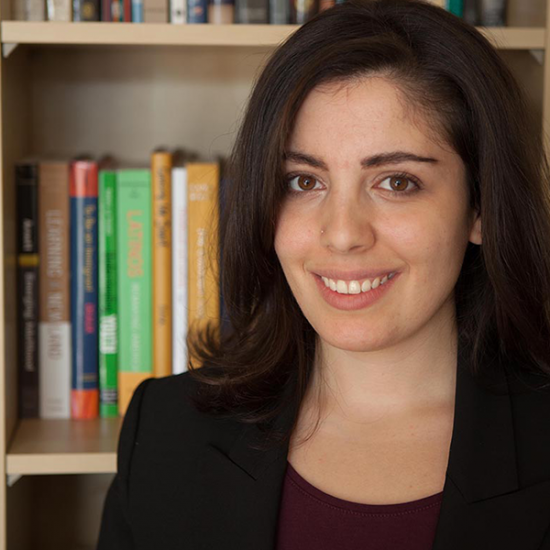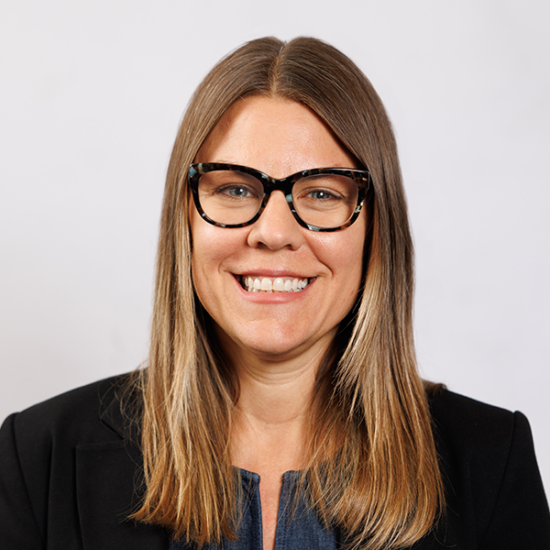Delve deeply into topics that align to your interests, experiences, and aspirations!
The Educational Studies concentration within the MEd Instructional Leadership program enables students to design their own course of study with guidance from an adviser. Individuals from a variety of backgrounds (art, sports, business, humanities, higher education, etc.) can pursue a course of study tailored to their backgrounds, interests, and personal & professional aspirations. Also, if applicant currently holds a professional teacher licensure s/he can earn endorsements to their PEL and /or pursue advanced studies in educational topics (although having a teacher license is not required for this program).
Housed in the Department of Curriculum and Instruction, this master's degree allows students the autonomy to pursue areas of study (and related coursework) that most align to their personal and professional aspirations. In this way, when an opportunity arises, a graduate will have credentials to pursue it.
Meaningful teaching and learning take place in a variety of settings, sometimes led by a licensed teacher, other times facilitated by individuals who educate and inspire others in a variety of settings (maybe in a corporate setting, on the sports field, in an art class, etc.). This program is designed for licensed educators looking to earn endorsements or to advance their knowledge on specific topics and for individuals from diverse backgrounds (support staff, museum educators, after school programs, non-for-profits, artists, athletic clubs, etc.) whose work impacts and enriches others’ lives.
Customization and Flexibility Heading link
Of the 32 semester hours required for the degree, nine hours are required courses (these are ED 402, ED421, and ED430). Students can design their own courses of study for the other semester hours. 14 of the hours need to be offered within the College of Education (400 or 500 level) and the 9 elective hours can be courses offered in the College of Education or in another UIC college. 9 hours need to be at the 500 level (which helps lay a foundation for potential doctoral work in the future).
Educational Studies offers a high degree of flexibility in creating a course of study that most aligns to an individual’s past experiences as well as to his or her future plans. Many of our graduates advance their careers in areas such as
- ESL/Bilingual work
- Curriculum writing and publishing
- Museum education
- Community engagement
- Curriculum theory
- Research or doctoral studies
Endorsements Heading link
Students with an Illinois Professional Educator License in the MEd Educational Studies program are eligible to pursue the following endorsements.
Bilingual and English as a Second Language (ESL) Endorsements
These endorsements enable students to teach in a bilingual and/or English as a second language setting.
Learning Behavior Specialist 1 (LBS1) Endorsement
The LBS1 (Learning Behavior Specialist 1) special education endorsement is for teaching students with a wide range of disabilities in several instructional delivery models that include teaching in inclusionary settings through consultation and collaborative teaching.
Middle School Endorsement
The College of Education offers courses that lead to a Middle School Endorsement for current undergraduate and graduate students in licensure programs. An individual who is already licensed must be a current UIC student.
Reading Teacher Endorsement
Students earn this Illinois endorsement to become qualified as a subject-level expert in reading.
Degree Requirements Heading link
Degree Requirements Heading link
Overall: 32 semester hours of credit
at least 9 must be at the 500 level
Faculty Heading link
Frequently Asked Questions Heading link
-
Do you still have a self-designed program?
Yes, it is called Educational Studies.
-
How long is the program?
The program consists of 32 hours: 9 hours of core curriculum, 14 hours for the area of specialization, and 9 hours of electives.
-
When are classes offered?
Courses are usually offered one night a week, Monday through Thursday, from 5 p.m. to 8 p.m.
-
What is an “area of specialization?”
This is an opportunity to pursue your interests through any courses offered by the College of Education.
-
What are some examples of “areas of specialization?”
The areas are unlimited but there are some that are frequently selected: mathematics education, science education, bilingual education or curriculum. This program offers unlimited opportunities to create your own unique and individualized course of study with an adviser.
Other areas that are popular are non-school education, community organizing, community college instructors, teachers in other realms with no need for additional licensure, teachers who want to become peer leaders, educators interested in developing staff development programs, people anticipating PhD work, teachers who feel they have earned sufficient licensure but want to enrich their practice and life.
There is also the opportunity to roll in a Middle School Endorsement if you are already licensed to teach in K to 12 classrooms with the addition of two classes, CI 484 and EPSY 446.
You may also earn Bilingual and English as a Second Language (ESL) endorsements through this program.
-
Can you get initial or administrative licensure in this program?
No.
-
Do I need to have a plan made in advance for my area of specialization?
No, we believe that you learn as you go along; therefore, you may not know what you want to specialize in. Thus, we encourage you to revise your plans as you progress through the program.
-
How do I get an adviser?
When you are admitted to the program, you are told that your adviser is the program coordinator. The program coordinator will consider your background, consult with you initially and match you with an appropriate and effective adviser.
-
What about electives?
These may be taken either in the College of Education or anywhere in the university where they have the background to take graduate level classes as determined by departments in question.
-
What if I have some graduate work at previous institutions?
If the graduate work has not been used for a degree, you may petition to have it count toward your program requirements. The maximum number of credit hours you can transfer in from a different institution is eight. You may transfer up to twelve non-degree seeking credit hours from U of I. These credit hours must be approved by the graduate college.
-
Can I take independent study work?
Yes, you can take up to 8 hours of independent study (596); you also may select CI 592 (Apprenticeship in Teaching) or CI 539 (Internship in Curriculum and Instruction). These can be done independently with faculty members who agree to supervise them.
-
Is there funding available for graduate students?
Faculty members have grants that offer research assistant positions. You can also look at our website for financial aid opportunities.
More funding exists for full-time students than for part-time students. There are a limited number of tuition waivers offered through the Office of Student Services. Contact them at 3145 ETMSW or by calling 312-996-4532.
-
How many hours should I take per semester?
It depends on your work load. Those who are employed full time usually take one or two courses.
-
Are the same courses offered every semester?
No. Core courses are offered frequently, but other courses are not.
-
What level of courses should I take?
Course must be at least 400-level, and you must take at least 9 hours at the 500 level. The independent study (CI 596), while it may count toward your required 32 hours, it does not count as a 500 level class. You may, of course, take more than 9 hours at the 500-level.
-
Is a master’s thesis required?
No, however, if someone is interested in doing an equivalent, the internship in Curriculum and Instruction (CI 539) may be taken as a culminating activity that could be similar to a thesis, but this is not required.
-
Are there cohorts?
No, although there is ample opportunity to work with other students.
-
Do you offer summer sessions?
We now offer two different summer sessions.







